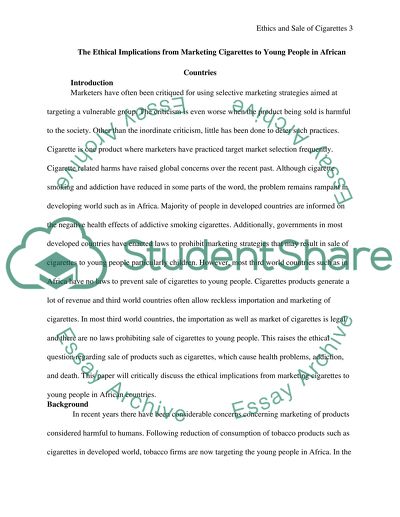Cite this document
(“The Ethical Implications from Marketing Cigarettes to Young People in Essay”, n.d.)
Retrieved from https://studentshare.org/marketing/1462506-critically-discuss-the-ethical-implications-from
Retrieved from https://studentshare.org/marketing/1462506-critically-discuss-the-ethical-implications-from
(The Ethical Implications from Marketing Cigarettes to Young People in Essay)
https://studentshare.org/marketing/1462506-critically-discuss-the-ethical-implications-from.
https://studentshare.org/marketing/1462506-critically-discuss-the-ethical-implications-from.
“The Ethical Implications from Marketing Cigarettes to Young People in Essay”, n.d. https://studentshare.org/marketing/1462506-critically-discuss-the-ethical-implications-from.


